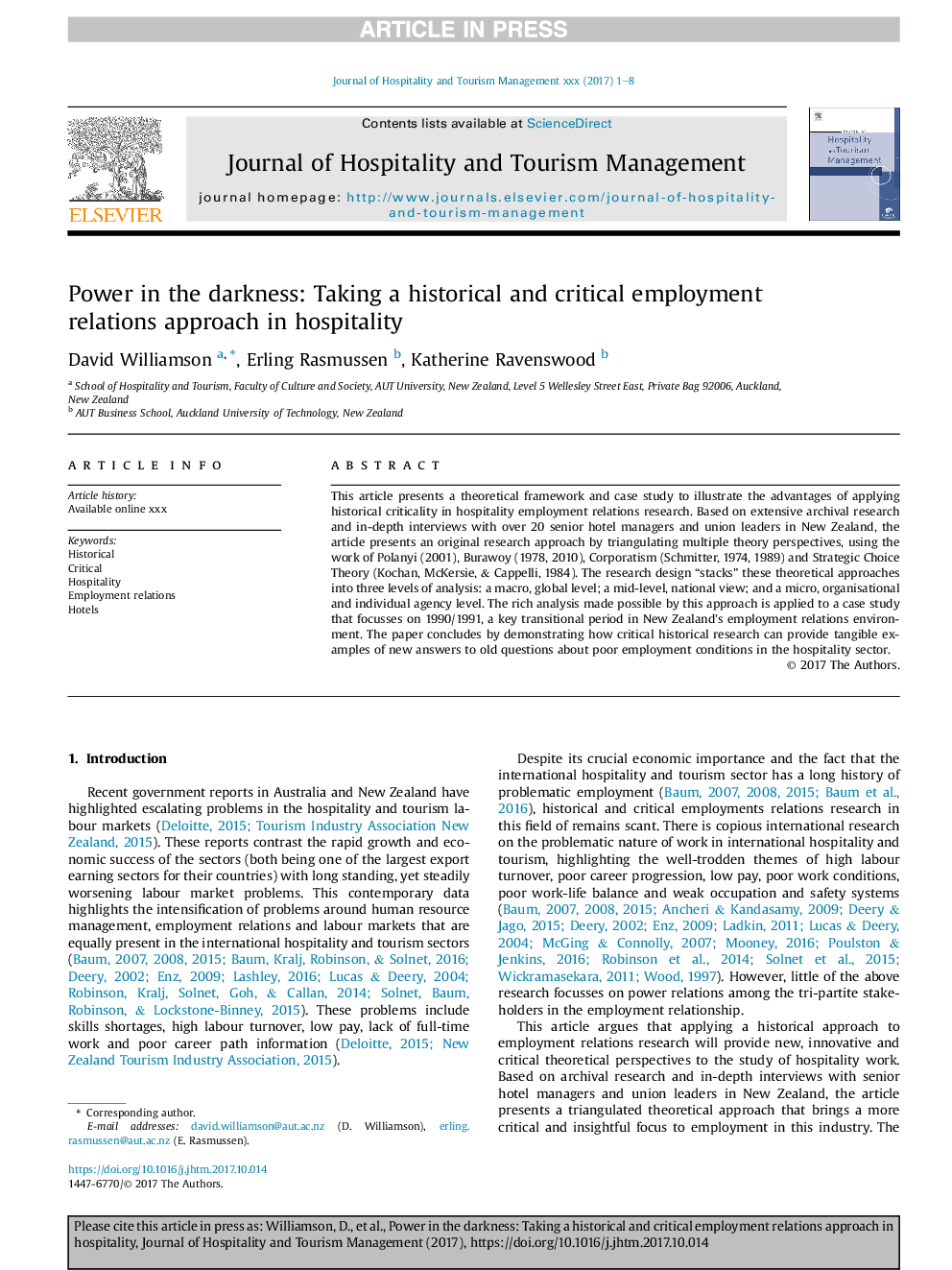| Article ID | Journal | Published Year | Pages | File Type |
|---|---|---|---|---|
| 7420377 | Journal of Hospitality and Tourism Management | 2017 | 8 Pages |
Abstract
This article presents a theoretical framework and case study to illustrate the advantages of applying historical criticality in hospitality employment relations research. Based on extensive archival research and in-depth interviews with over 20 senior hotel managers and union leaders in New Zealand, the article presents an original research approach by triangulating multiple theory perspectives, using the work of Polanyi (2001), Burawoy (1978, 2010), Corporatism (Schmitter, 1974, 1989) and Strategic Choice Theory (Kochan, McKersie, & Cappelli, 1984). The research design “stacks” these theoretical approaches into three levels of analysis: a macro, global level; a mid-level, national view; and a micro, organisational and individual agency level. The rich analysis made possible by this approach is applied to a case study that focusses on 1990/1991, a key transitional period in New Zealand's employment relations environment. The paper concludes by demonstrating how critical historical research can provide tangible examples of new answers to old questions about poor employment conditions in the hospitality sector.
Related Topics
Social Sciences and Humanities
Business, Management and Accounting
Tourism, Leisure and Hospitality Management
Authors
David Williamson, Erling Rasmussen, Katherine Ravenswood,
